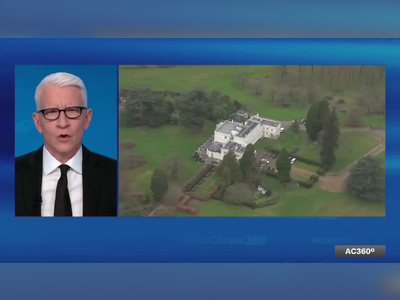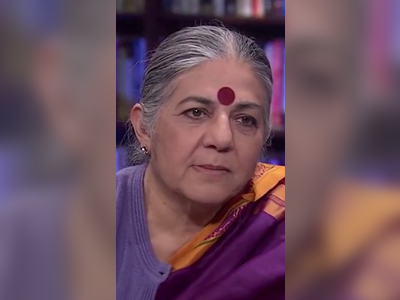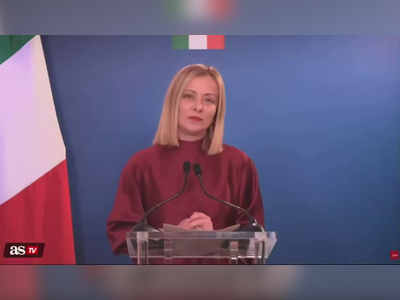
Iran vs the rest: the Middle East has reached a tipping point
Last year, in the cigar bar of an opulent London hotel much favoured by visiting Arabs, an interesting conversation took place.
My friend was rich enough to have two private jets and claimed to be doing private shuttle diplomacy between Israel and one of the Gulf states. Smoke curled around our heads and a young Qatari in Gucci trainers passed by with a woman my friend assured me was a Russian prostitute.
My friend’s phone was out now and he was on a video call with a man he said was a senior official in the Iranian Revolutionary Guard. He asked him about a drone strike on Saudi Arabia’s two biggest oil refineries.
The man chuckled. ‘Ah yes, that was us.’ Saudi Arabia’s oil production was briefly cut in half by that attack in September last year, but what really worried the Saudis was how the Americans did nothing more than issue a few tired words of condemnation. The Saudis suddenly had a glimpse of what getting into a war with Iran would be like without US military support.
And this occurred under Donald Trump, perhaps the most uncritically pro-Saudi US leader ever to sit in the Oval Office. When the dissident journalist Jamal Khashoggi was killed and dismembered in the Saudi consulate in Istanbul in 2018, Trump said he didn’t much care whether the Saudi ruler, Crown Prince Mohammed bin Salman (MBS), had known what was happening. ‘Maybe he did and maybe he didn’t!’
This was just a part of one of the more extraordinary statements issued in Trump’s name under the White House letterhead - and there have been a few. Joe Biden, on the other hand, used the second anniversary of Khashoggi’s death to say he would ‘reassess’ the US-Saudi relationship. ‘Jamal’s death will not be in vain.’ Biden calls Saudi Arabia a ‘pariah’ state, because of Khashoggi, the jailing of other human rights activists, and the war in Yemen. When he is president, he has made clear, there will be no more blank cheques for Riyadh.
This was part of the backdrop to the curious meeting in Saudi Arabia two weeks ago between MBS, the Israeli prime minister Benjamin Netanyahu and the US Secretary of State Mike Pompeo. Saudi Arabia, Israel and - while Trump still sits in the White House - the US are all adamantly opposed to the Iran nuclear deal, believing it gives Tehran cover to produce a bomb. Since Biden wants to revive the deal, and will take office on 20 January, they have little time left to do something.
Did they discuss joint military action? There has been no leak from the meeting, but probably not. A few weeks ago, according to the New York Times, President Trump asked for options to attack Iran but was told by the chairman of the joint chiefs that he might start a regional war he could not stop.
MBS may be nervous too. The day after the meeting - as if to remind the Saudis of their vulnerabilities - there was another attack on an oil plant, this time in Jeddah. Perhaps wishing not to provoke Tehran, the Saudis deny the meeting happened at all. Or perhaps MBS thinks that neither his father the King nor his subjects are ready for peace with Israel, even one based on enmity to Iran. None of that matters - because the Israelis are not waiting around for anyone else.
Last Friday, Professor Mohsen Fakhrizadeh, ‘the Iranian Oppenheimer’, was shot or blown up as he and his bodyguards drove through the countryside of northern Iran. Two years earlier, Netanyahu had used a news conference to identify him as the head of Project 111, allegedly the secret Iranian effort to build a nuclear bomb small enough to fit on top of a missile. ‘Remember that name,’ Netanyahu said, ‘Fakhrizadeh.’
The killing caused an outpouring of fury in Iran. President Hassan Rouhani said: ‘Once again, the evil hands of global arrogance were stained with the blood of the mercenary usurper Zionist regime.’ This may have been the reaction Netanyahu wanted. Ben Rhodes, President Obama’s deputy national security adviser, said the nuclear deal itself was a target of the assassination as much as the scientist. He tweeted: ‘This is an outrageous action aimed at undermining diplomacy between an incoming US administration and Iran.’
But that assumes Iran wants to return to a deal with the US. The Iranians feel cheated by the Obama administration, accusing it of cutting off their access to dollars from international banks once everything had been signed. They have also been talking about getting compensation for the billions the economy lost while under sanctions in the years since the Trump administration abandoned the deal.
From the Iranian point of view, they stayed in the agreement while the Americans left, although the International Atomic Energy Agency says Iran now has 2,440 kilograms of enriched uranium, more than eight times what it’s supposed to have. For all that, the Iranian Foreign Minister, Mohammad Javad Zarif, says he is ‘ready to discuss’ re-entering the deal with the US. If this starts to look inevitable, what would Israel do then?
Netanyahu holds to the Begin doctrine: no state that threatens Israel’s existence can be allowed to have nuclear weapons. Menachem Begin was the Israeli prime minister who ordered an air raid on Iraq’s nuclear reactor at Osirak in 1981. He told a press conference afterwards: ‘There won’t be another Holocaust in history.
Never again, never again… We survived. We shall survive.’ Netanyahu, too, often invokes the Shoah when warning about Iran’s nuclear ambitions but ‘unlike our situation during the Holocaust, when we were like leaves on the wind, defenceless, now we have great power to defend ourselves’. Israel may, in fact, have 300 nuclear weapons - as Jimmy Carter said in 2014 - and Iran might eventually get only one or two. But the Israelis don’t think that the logic of deterrence applies in this case. Netanyahu has said Iran is a ‘messianic regime’ that would be willing to destroy itself in order to destroy Israel.
It is not surprising therefore that Netanyahu has reportedly come close to ordering a pre-emptive attack on Iran’s nuclear facilities several times during his long premiership. He was stopped, if the Israeli media are to be believed, by his own military and by the intelligence agency, Mossad. Both the generals and the spies apparently told him that an all-out attack from the air would not succeed: Iran’s nuclear facilities were too spread out, too deeply buried. And there would be a terrible cost.
Iran’s militia in Lebanon, Hezbollah, would almost certainly be ordered to open hostilities with Israel. Hezbollah is said to possess 150,000 rockets and missiles; these, too, could threaten Israel’s existence. Ever since David Ben--Gurion led the country, Israelis have believed that their first defeat might be their last. So instead of an all-out attack on Iran’s nuclear facilities, there has been a very effective campaign of sabotage and assassination. Professor Fakhrizadeh was not the first Iranian scientist to be killed by Mossad’s hidden hand.
Whether Netanyahu tries again to order a large-scale attack on Iran will depend, firstly, on whether the Israeli military has improved its capabilities since the last time he was persuaded not to act. It would then be a matter of high principle - Netanyahu’s belief that the future of the Jewish nation is at stake - but also perhaps of low politics: his desire to stay politically strong enough to keep out of jail.
Netanyahu is the first sitting prime minister in Israel to face criminal charges, accused of bribery and corruption. He denies the accusations but could face ten years in prison if convicted. What if Netanyahu thought that a strike against Iran would rally Israelis and give him a parliamentary majority big enough to stop the trial? His critics believe that he might be prepared even for a reckless gamble on war with Iran to ensure his own survival.
Trump’s enemies believe him, too, capable of anything to stay in office or out of jail, even starting a war, or giving Netanyahu permission to start one. But Iran’s theocratic leaders seem, for now, to be acting with extreme caution.
They are said to have instructed militias in Iraq not to attack any American targets - they don’t want to give Trump or Netanyahu any excuse. The nuclear deal, Biden’s presidency and peace in the Middle East all depend on what happens in the next six weeks. Like a Democratic president before him, Biden finds his fate in the hands of the mullahs in Tehran.
My friend’s phone was out now and he was on a video call with a man he said was a senior official in the Iranian Revolutionary Guard. He asked him about a drone strike on Saudi Arabia’s two biggest oil refineries.
The man chuckled. ‘Ah yes, that was us.’ Saudi Arabia’s oil production was briefly cut in half by that attack in September last year, but what really worried the Saudis was how the Americans did nothing more than issue a few tired words of condemnation. The Saudis suddenly had a glimpse of what getting into a war with Iran would be like without US military support.
And this occurred under Donald Trump, perhaps the most uncritically pro-Saudi US leader ever to sit in the Oval Office. When the dissident journalist Jamal Khashoggi was killed and dismembered in the Saudi consulate in Istanbul in 2018, Trump said he didn’t much care whether the Saudi ruler, Crown Prince Mohammed bin Salman (MBS), had known what was happening. ‘Maybe he did and maybe he didn’t!’
This was just a part of one of the more extraordinary statements issued in Trump’s name under the White House letterhead - and there have been a few. Joe Biden, on the other hand, used the second anniversary of Khashoggi’s death to say he would ‘reassess’ the US-Saudi relationship. ‘Jamal’s death will not be in vain.’ Biden calls Saudi Arabia a ‘pariah’ state, because of Khashoggi, the jailing of other human rights activists, and the war in Yemen. When he is president, he has made clear, there will be no more blank cheques for Riyadh.
This was part of the backdrop to the curious meeting in Saudi Arabia two weeks ago between MBS, the Israeli prime minister Benjamin Netanyahu and the US Secretary of State Mike Pompeo. Saudi Arabia, Israel and - while Trump still sits in the White House - the US are all adamantly opposed to the Iran nuclear deal, believing it gives Tehran cover to produce a bomb. Since Biden wants to revive the deal, and will take office on 20 January, they have little time left to do something.
Did they discuss joint military action? There has been no leak from the meeting, but probably not. A few weeks ago, according to the New York Times, President Trump asked for options to attack Iran but was told by the chairman of the joint chiefs that he might start a regional war he could not stop.
MBS may be nervous too. The day after the meeting - as if to remind the Saudis of their vulnerabilities - there was another attack on an oil plant, this time in Jeddah. Perhaps wishing not to provoke Tehran, the Saudis deny the meeting happened at all. Or perhaps MBS thinks that neither his father the King nor his subjects are ready for peace with Israel, even one based on enmity to Iran. None of that matters - because the Israelis are not waiting around for anyone else.
Last Friday, Professor Mohsen Fakhrizadeh, ‘the Iranian Oppenheimer’, was shot or blown up as he and his bodyguards drove through the countryside of northern Iran. Two years earlier, Netanyahu had used a news conference to identify him as the head of Project 111, allegedly the secret Iranian effort to build a nuclear bomb small enough to fit on top of a missile. ‘Remember that name,’ Netanyahu said, ‘Fakhrizadeh.’
The killing caused an outpouring of fury in Iran. President Hassan Rouhani said: ‘Once again, the evil hands of global arrogance were stained with the blood of the mercenary usurper Zionist regime.’ This may have been the reaction Netanyahu wanted. Ben Rhodes, President Obama’s deputy national security adviser, said the nuclear deal itself was a target of the assassination as much as the scientist. He tweeted: ‘This is an outrageous action aimed at undermining diplomacy between an incoming US administration and Iran.’
But that assumes Iran wants to return to a deal with the US. The Iranians feel cheated by the Obama administration, accusing it of cutting off their access to dollars from international banks once everything had been signed. They have also been talking about getting compensation for the billions the economy lost while under sanctions in the years since the Trump administration abandoned the deal.
From the Iranian point of view, they stayed in the agreement while the Americans left, although the International Atomic Energy Agency says Iran now has 2,440 kilograms of enriched uranium, more than eight times what it’s supposed to have. For all that, the Iranian Foreign Minister, Mohammad Javad Zarif, says he is ‘ready to discuss’ re-entering the deal with the US. If this starts to look inevitable, what would Israel do then?
Netanyahu holds to the Begin doctrine: no state that threatens Israel’s existence can be allowed to have nuclear weapons. Menachem Begin was the Israeli prime minister who ordered an air raid on Iraq’s nuclear reactor at Osirak in 1981. He told a press conference afterwards: ‘There won’t be another Holocaust in history.
Never again, never again… We survived. We shall survive.’ Netanyahu, too, often invokes the Shoah when warning about Iran’s nuclear ambitions but ‘unlike our situation during the Holocaust, when we were like leaves on the wind, defenceless, now we have great power to defend ourselves’. Israel may, in fact, have 300 nuclear weapons - as Jimmy Carter said in 2014 - and Iran might eventually get only one or two. But the Israelis don’t think that the logic of deterrence applies in this case. Netanyahu has said Iran is a ‘messianic regime’ that would be willing to destroy itself in order to destroy Israel.
It is not surprising therefore that Netanyahu has reportedly come close to ordering a pre-emptive attack on Iran’s nuclear facilities several times during his long premiership. He was stopped, if the Israeli media are to be believed, by his own military and by the intelligence agency, Mossad. Both the generals and the spies apparently told him that an all-out attack from the air would not succeed: Iran’s nuclear facilities were too spread out, too deeply buried. And there would be a terrible cost.
Iran’s militia in Lebanon, Hezbollah, would almost certainly be ordered to open hostilities with Israel. Hezbollah is said to possess 150,000 rockets and missiles; these, too, could threaten Israel’s existence. Ever since David Ben--Gurion led the country, Israelis have believed that their first defeat might be their last. So instead of an all-out attack on Iran’s nuclear facilities, there has been a very effective campaign of sabotage and assassination. Professor Fakhrizadeh was not the first Iranian scientist to be killed by Mossad’s hidden hand.
Whether Netanyahu tries again to order a large-scale attack on Iran will depend, firstly, on whether the Israeli military has improved its capabilities since the last time he was persuaded not to act. It would then be a matter of high principle - Netanyahu’s belief that the future of the Jewish nation is at stake - but also perhaps of low politics: his desire to stay politically strong enough to keep out of jail.
Netanyahu is the first sitting prime minister in Israel to face criminal charges, accused of bribery and corruption. He denies the accusations but could face ten years in prison if convicted. What if Netanyahu thought that a strike against Iran would rally Israelis and give him a parliamentary majority big enough to stop the trial? His critics believe that he might be prepared even for a reckless gamble on war with Iran to ensure his own survival.
Trump’s enemies believe him, too, capable of anything to stay in office or out of jail, even starting a war, or giving Netanyahu permission to start one. But Iran’s theocratic leaders seem, for now, to be acting with extreme caution.
They are said to have instructed militias in Iraq not to attack any American targets - they don’t want to give Trump or Netanyahu any excuse. The nuclear deal, Biden’s presidency and peace in the Middle East all depend on what happens in the next six weeks. Like a Democratic president before him, Biden finds his fate in the hands of the mullahs in Tehran.











